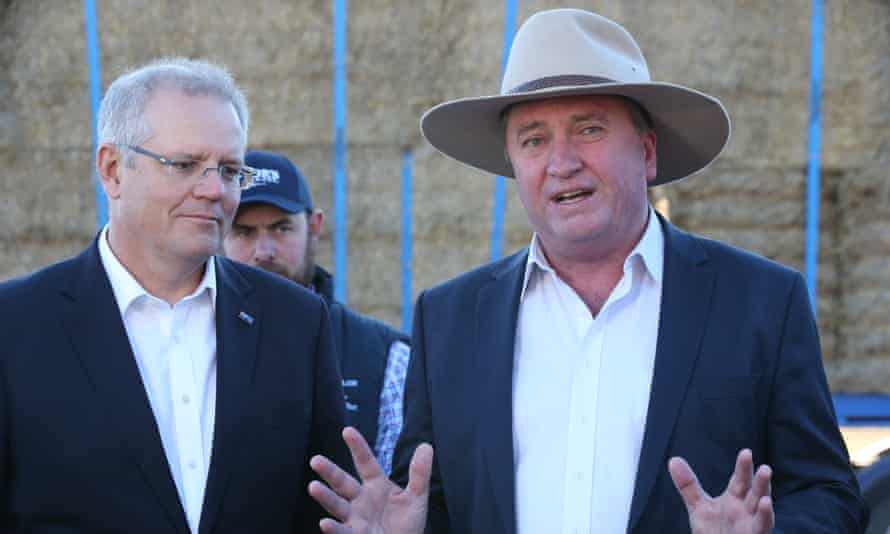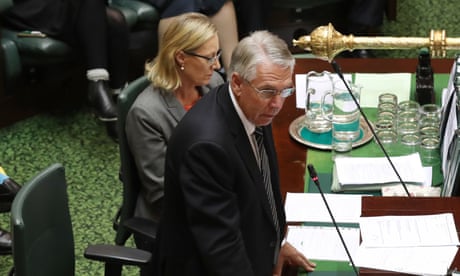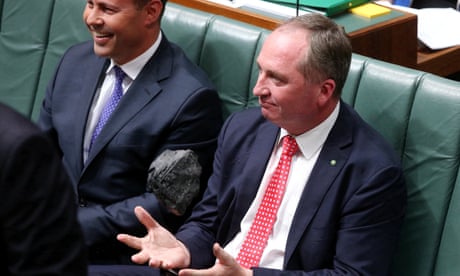Extract from The Guardian
Barnaby Joyce’s leadership is not a good fit with the evolved values of traditional rural voters.

Last modified on Fri 9 Jul 2021 11.02 AEST
Former leader of the National party Michael McCormack often declared a specific ire for those of my cultural ilk.
The day before lockdown I recorded a live podcast about climate change and socialism at a talks-and-ideas event in a theatre. The performance was sandwiched between that of a drag king and a roving choir. Afterwards I met some arty friends at a bookstore cafe. Together we joined thousands of people perusing the artisan whiskey bars, punk cellists, art installations, bands and gnocchi stalls of a laneway festival. We had dumplings for dinner.
It shouldn’t really surprise McCormack that I did all these things in the rural township of Wagga Wagga. They all took place within a single-kilometre radius of his electoral office.

It’s no surprise to anyone who lives in today’s rural Australia, either. Improved logistics and the internet have overcome the old tyrannies of distance that used to keep communities apart from ideas that are important and tastes they might enjoy. I say this as a person who lives – surprise! – in an ungentrified country town where voters for all parties drink coffee, voted for marriage equality and fret about what climate change will mean for us.
Not that I don’t feel sympathy for McCormack. One day you’re the deputy prime minister and nobody knows your name. Then it’s two weeks later and you’re not even deputy prime minister.
It’s been barely a fortnight since infamous Johnny Depp-dog-threatener-human meme Barnaby Joyce regained the leadership of the National party. His return raises profound questions about the political representation of modern rural Australia.
Two weeks in, it’s conspicuous that there is no competing political vision for Australia’s rural constituencies between current and former leader. There’s no new slate of policy priorities. The greatest difference between the pair appears to be that of relative profile: McCormack struggled for recognition even as an Elvis impersonator while Joyce went viral for shouting incoherently about Jesus in a paddock full of cows.
Formerly known as the Country party, the Nationals were early movers to anoint themselves the dominant political voice for country Australia. To listen to the party leadership in any of its Joyce, McCormack or Joyce iterations is therefore to imagine rural communities as a monocultural hotbed of fervent anti-metropolitanism, where proud, coal-clutching rubes alternate between hissing at gays and spitting a devil’s drink like coffee from their lips.
Even on his way out, McCormack was doubling down on the city-versus-country rhetoric. He denounced the climate concerned as “inner-city raving lunatics”. He decried “coffee inner-city types”. He wished the mouse plague that has bedevilled his own electorate would “scratch their children”.
In reality, the prejudices they espouse lag far behind the evolved values of traditional National constituencies – on gender, on LGBTQIA+ equality, on multiculturalism, on the climate. If ever there was proof that rural communities have far more liberal values than the Nationals pretend they do, it’s that Joyce’s creative interpretation on the theme of “traditional marriage” didn’t cost him his seat.
Gabrielle Chan’s excellent book Rusted Off details a growing disillusionment of rural voters towards the political establishment. But even as ground-breaking former rural independent Cathy McGowan spreads her political influence across these electorates, there remains deep generational loyalty to “the country party” even among voters who have politically outgrown them.

The second-biggest loser of the Nationals leadership contest is the Joyce-demoted former veterans’ affairs minister Darren Chester. The man has unfortunately earned the respect of reasonable members on both sides of the house for his collegiality and fair dealing, so his leadership chances are slight.
The biggest loser remains rural communities represented by Nationals MPs, to whom Chester – typically, alas – had the good manners to apologise.
While the public theatre continues, the National party is not a serious party for country people. It is a collection of inauthentic stereotypes about rural Australia, exploiting the loyalty of real communities who face encroaching tests their representatives continue, wilfully, to ignore.
No comments:
Post a Comment